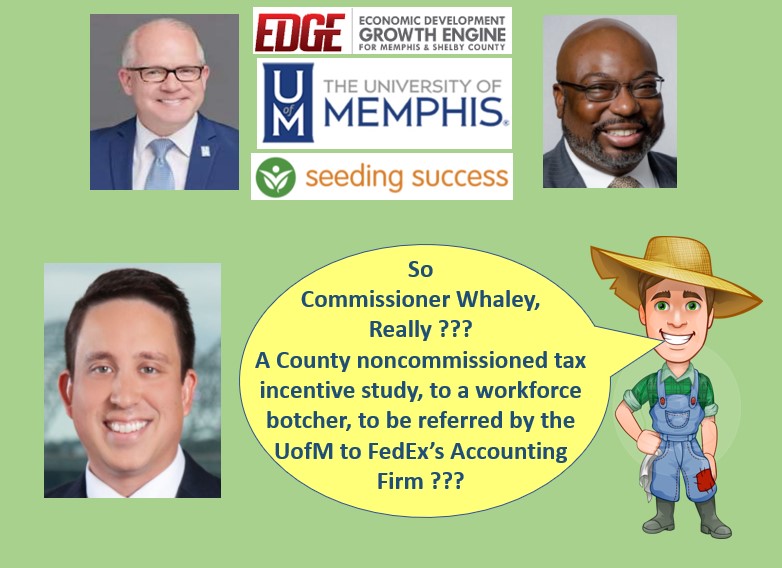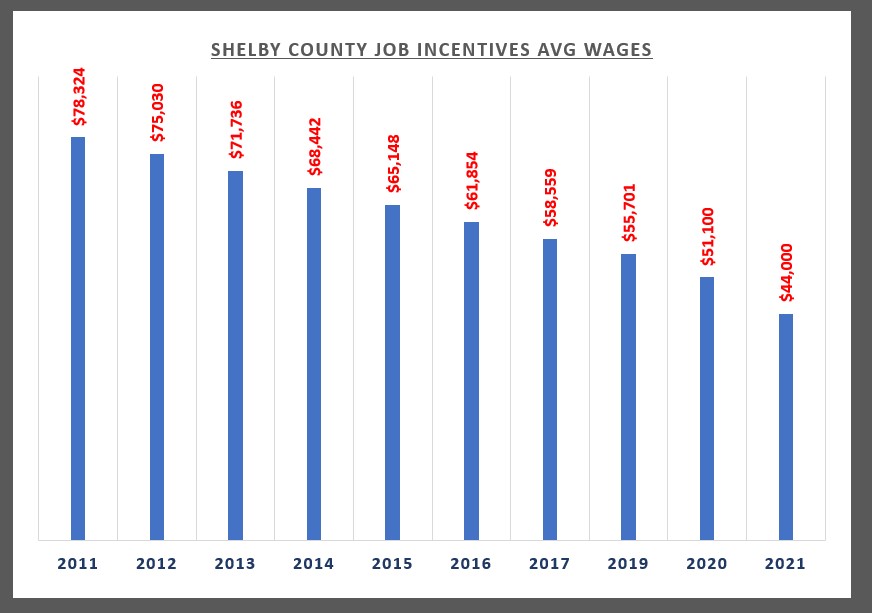Instead of sponsoring a County administered tax incentive study, Commissioner Michael Whaley is sponsoring attaching such critical public work, to the elitist Memphis public private complex. Under the Whaley proposal, the work is to be done under the public-private umbrella of Seeding Success.
No one really seems to know much about the expansive mission of Seeding Success. What we do know is that Seeding Success, with an army of people working there, first started promoting Pre-K. Then they expanded from Pre-K thru post-secondary education.
Since that expansion, with no plan, Seeding Success has sat and watched the local botching and sacrificing of the workforce development system to the Nashville based State Cartel on Ripping Education (SCORE Board) in Shelby County.
To make matters more conflicting, Al Bright, Chairman of the EDGE Board and Blair Taylor, CEO of Memphis Tomorrow both sit on the Seeding Success Board. Memphis Tomorrow is where much of the Memphis agenda for elitist decline has originated. Under the Whaley proposal, Seeding Success would follow The University of Memphis recommendation to have the study conducted by FedEx’s corporate accounting firm, Ernest and Young (E&Y). FedEx is a disgusting pig on the civic stage.
It’s sad that the public University of Memphis cannot conduct the study, since surrendering their university economic development thought leadership to the Greater Memphis Chamber and disemboweling their School of Economics.
But more sad is that Whaley has chosen to trample on, arguably more locally informed, referenced and participatory research on the matter, while following UofM counsel on the matter. This is a typical elitist move to dismiss the local taxpaying public on the matter, while exporting such work off to New York and celebrating a public private failure in Seeding Success.
The missed opportunity here is that there are well informed and researched positions on both sides of the tax incentive matter, from which local legislators can make policy decisions. After all, those that might conduct the E&Y research likely have never been to a local legislative or EDGE meeting. Having participated in local meetings, is more than critical, as it provides anecdotal insight to oversight and local procedure.
Meanwhile, the Chamber and UofM’s Ted Townsend continue to promote the status quo on tax incentives while reporting declining results.
Not Connecting the Dots: History and Chamber Pipeline
Unfortunately, Whaley either cannot or is unwilling to connect the dots when proposing solutions. One would think that Whaley would be up to speed with local public testimony by Chamber/UofM Ted Townsend before taking an economic development recommendation from the UofM.
Here is some history, contained in the table above and informed with this legislative package from April, 2021. From 2011 to 2019, prior to Townsend, the average annual wage for job incentives dropped from $78K to $56K.
Based on Townsend City Council testimony on 9/21, the average wage for closed job incentive projects from the 2020 pipeline is $51K. And after stating on Behind the Headlines that the Chamber was working a pipeline with average wages of $64K in February 2021, Townsend reported to Council, a pipeline with average wages of $44K.
With incented average wage drops from $78K to $44K, this represents a public economic development implosion, with wages projected to crater from incented projects by 43% from 2011. So why would Whaley take a recommendation from the UofM ? Not connecting the dots…….
Meanwhile, as this cratering occurs and before City Council, Townsend waves the flag “of needing business predictability” in objection to incentive reform, as if, at some time in the future, the need for business predictability will go away. That will never happen….


